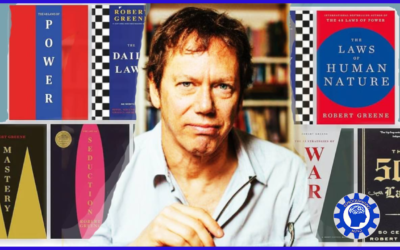Social media seems to have become an essential part of daily life. From scrolling through Instagram to sharing updates on Facebook, these platforms have changed how we communicate, get information, and see the world. But as social media use grows, we need to ask: Is it good or bad for our mental health?
Here we look at the complicated relationship between social media and mental health, looking at both the benefits and the hidden dangers of our favorite apps.
The Rise of Social Media: A Brief Overview
Before we get into the mental health effects, let's look at the rise of social media. Since platforms like MySpace and Facebook launched in the early 2000s, social media has become a global phenomenon. Today, giants like Instagram, Twitter, TikTok, and LinkedIn are used by over 4.9 billion people worldwide.
This connectivity has changed how we interact, share information, and do business. But as we spend more time on our devices, concerns about the psychological impact of this digital shift have grown.
The Positive Side: How Social Media Can Boost Mental Health
While social media's negative aspects get a lot of attention, it's important to recognize its potential benefits for mental health when used wisely. Here are some ways social media can positively affect our psychological well-being:
1. Enhanced Social Connections
Social media can help maintain relationships regardless of distance. For those far from loved ones or with mobility issues, it provides a vital link to family and friends.
Research shows that feeling socially connected can improve mental health, reducing depression and anxiety. Social media offers various ways to nurture these connections, from instant messaging to video calls, allowing users to share moments and support each other emotionally.
2. Access to Support Communities
For those facing specific mental health challenges, social media can be a valuable resource for finding support. Online communities and support groups for various conditions offer a safe space to share experiences, seek advice, and feel less alone.
These communities can be particularly beneficial for those who feel isolated or stigmatized in their offline lives, offering a sense of belonging and acceptance.
3. Information and Resource Sharing
Social media platforms are powerful tools for spreading mental health information and resources. From educational content about conditions to tips for managing stress and anxiety, these platforms can be valuable sources of knowledge and support.
Mental health professionals and organizations use social media to reach wider audiences, making expert advice more accessible.
4. Positive Self-Expression and Creativity
Many users find social media an outlet for self-expression and creativity. Whether through sharing art, writing, or creating videos, these platforms provide opportunities to showcase talents and passions.
This creative expression can be therapeutic, boosting self-esteem and providing a sense of accomplishment. Positive feedback and engagement from others can further enhance feelings of self-worth and connection.
5. Awareness and Destigmatization of Mental Health Issues
Social media has helped raise awareness about mental health issues and challenge the stigma. Campaigns and personal stories shared by influencers and celebrities have normalized conversations about mental health, encouraging more people to seek help.
This increased dialogue can lead to greater understanding and empathy, creating a more supportive environment for those struggling with mental health challenges.
The Dark Side: Potential Negative Impacts on Mental Health
While social media has benefits, it's important to understand its potential negative effects on mental health. As usage has increased, so have concerns about its psychological toll, especially on young people.
1. Social Comparison and FOMO
One significant drawback of social media is its tendency to fuel social comparison and the fear of missing out (FOMO). As users view idealized versions of others' lives, they may compare their own lives unfavorably.
This constant exposure can lead to feelings of inadequacy, low self-esteem, and even depression. FOMO can create anxiety and dissatisfaction with one's own life.
2. Addiction and Compulsive Behavior
The design of social media, with infinite scrolling and intermittent rewards, can be addictive. Many users compulsively check their accounts, leading to decreased productivity, disrupted sleep, and increased stress.
This behavior can have serious implications for mental health, potentially worsening conditions like anxiety and depression.
3. Cyberbullying and Online Harassment
The anonymity and distance of social media can sometimes lead to cyberbullying and harassment, especially among younger users. Such experiences can be devastating, causing anxiety, depression, and even suicidal thoughts.
Constant connectivity means victims may feel they can't escape the torment, amplifying the negative impact on their mental health.
4. Body Image Issues and Eating Disorders
The prevalence of filtered and edited images can contribute to unrealistic beauty standards and body image issues. This is particularly concerning for young people.
Studies show a correlation between heavy social media use and increased risk of body dissatisfaction and disordered eating behaviors. The pressure to present a perfect image can negatively impact self-esteem.
5. Sleep Disruption
Using social media, especially late at night, can disrupt sleep patterns. The blue light from screens interferes with circadian rhythms, making it harder to fall asleep and reducing sleep quality.
Poor sleep can have far-reaching consequences, worsening conditions like depression and anxiety.
6. Information Overload and Stress
The constant stream of information on social media can be overwhelming, leading to stress. The never-ending influx of content makes it difficult to disconnect and relax.
This constant alertness can contribute to feelings of anxiety and burnout.
Striking a Balance: Tips for Healthy Social Media Use
To maintain good mental health, balance is key. Here are strategies for using social media in a way that supports mental well-being:
1. Set boundaries: Establish specific times for checking social media and stick to them. Consider "digital detox" periods where you disconnect completely.
2. Curate your feed: Unfollow or mute accounts that consistently make you feel negative. Follow accounts that inspire and uplift you instead.
3. Practice mindful usage: Be aware of how different content makes you feel. Limit exposure to things that consistently bring you down.
4. Engage authentically: Focus on genuine connections rather than collecting likes or followers. Use social media for meaningful interaction.
5. Limit comparison: Remember that most people share highlight reels on social media. Avoid comparing your behind-the-scenes to others' curated posts. This is like seeing their best mask and comparing it to your raw self.
6. Prioritize real-world connections: Social media should supplement, not replace, face-to-face interactions. Make time for in-person connections with friends and family.
7. Use privacy settings: Protect your personal information and control who can see and interact with your content.
8. Seek help when needed: If social media significantly impacts your mental health, reach out to a mental health professional.
Conclusion: A Tool, Not a Lifestyle
Social media is a tool, and its impact depends on how we use it. While it can enhance our lives and provide valuable resources and support, it can also pose risks if used excessively or mindlessly.
By approaching social media with awareness and intention, we can harness its benefits while mitigating its negative effects. It's crucial to prioritize our mental well-being and remember that a fulfilling life extends beyond our screens.
Where digital connection is the norm, let's use social media to enrich our lives and support our mental health, rather than detract from it. The most important connection is the one we have with ourselves and the real world around us.
























